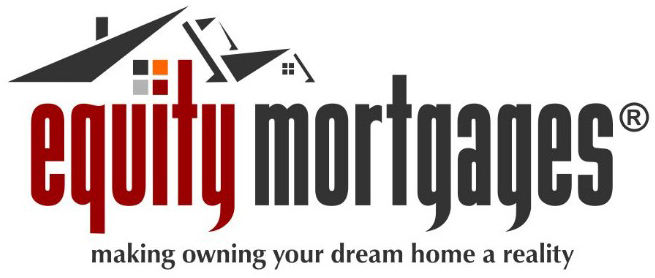Exploring the Various Kinds Of Equity Release Mortgages Available Today
Equity Release home loans present various choices for homeowners aged 55 and over. equity release mortgages. These financial items provide to different demands and preferences, permitting individuals to accessibility funds from their building. From life time home mortgages to shared gratitude mortgages, each kind provides distinctive benefits. Recognizing these alternatives is important for making notified decisions. What elements should one consider when picking the most appropriate equity Release plan? The information that comply with might shed light on this essential topic
Understanding Equity Release Mortgages
Equity Release home mortgages provide property owners, normally those aged 55 and over, with a way to access the value bound in their building without needing to sell it. This economic choice permits people to transform a part of their home equity into cash money, which can be used for numerous functions, such as home renovations, paying off financial obligations, or financing retirement.Equity Release can take various kinds, yet it fundamentally includes loaning versus the worth of the home while keeping ownership. Property owners can select to obtain a round figure or a collection of smaller sized payments, depending on their monetary demands and preferences.Additionally, the quantity readily available for Release is influenced by the home's worth, the house owner's age, and particular lender standards. Overall, recognizing equity Release mortgages is essential for homeowners to make informed decisions concerning taking advantage of their home's equity while thinking about the long-term implications.
Lifetime Mortgages
Life time home mortgages represent among the most popular forms of equity Release. This monetary item allows home owners, commonly aged 55 or older, to obtain against the value of their residential or commercial property while maintaining ownership. The funding, which is safeguarded versus the home, accrues passion gradually but does not need month-to-month payments. Rather, the financing and accumulated interest are settled when the home owner passes away or relocates right into long-term care.Lifetime home loans offer versatility, as debtors can pick to receive a lump sum or go with a drawdown facility, accessing funds as needed. Importantly, lots of plans come with a no-negative-equity guarantee, making certain that borrowers will certainly never ever owe greater than the value of their home. This feature offers assurance, permitting individuals to appreciate their retired life without the worry of diminishing their estate. Generally, lifetime home mortgages work as a feasible option for those seeking monetary support in later life.
Home Reversion Plans

Drawdown Lifetime Mortgages
While many home owners look for means to access their riches, drawdown life time home loans present a flexible option that enables people to Release funds gradually. This kind of equity Release home mortgage allows home owners to borrow against the worth of their residential property while keeping ownership. Unlike traditional lifetime home mortgages, drawdown strategies allow debtors to access a part of their equity upfront and take out extra funds as needed, as much as an established limit.This attribute can be specifically beneficial for those that desire to handle their funds meticulously, as it minimizes interest accumulation by just billing passion on the quantities drawn. Additionally, drawdown lifetime home loans typically feature a "no adverse equity guarantee," making certain that borrowers will certainly never ever owe more than their home's worth. This choice matches retirees that prefer economic security and adaptability, permitting them to meet unanticipated expenditures or maintain their way of life without having to sell their residential or commercial property.
Improved Life Time Mortgages
Boosted Lifetime Home mortgages supply distinct benefits for eligible home owners seeking to Release equity from their residential properties. Comprehending the qualification standards is necessary, as it identifies who can gain from these specialized loans. Nonetheless, it is likewise crucial to review the prospective disadvantages associated with improved alternatives, making certain a well-rounded perspective on their use.
Qualification Standards Described
Recognizing the eligibility standards for Enhanced Life time Mortgages is necessary for possible applicants seeking to access the equity in their homes. Generally, applicants have to be aged 55 or older, as this age need is typical in the equity Release market. House owners should have a residential property valued at a minimum threshold, which can differ by lender. Importantly, the building must be their primary residence and in great problem. Lenders commonly analyze the house owner's health status, as certain health problems might enhance qualification and advantages. Additionally, candidates must not have existing considerable debts protected versus the property. Satisfying these standards allows individuals to explore Boosted Lifetime Home loans as a sensible alternative for accessing funds locked up in their homes.
Benefits of Enhanced Home Mortgages
After clarifying the eligibility criteria, it comes to be apparent that Improved Life time Mortgages provide a number of considerable benefits for house owners aiming to leverage their property equity. Mostly, they supply accessibility to a bigger financing amount contrasted to standard lifetime mortgages, benefiting those with wellness problems or age-related aspects that increase their life span risk. This enhanced loaning capability allows house owners to satisfy various monetary demands, such as home renovations or retirement expenses. In addition, these home loans typically come with flexible repayment choices, enabling customers to manage their financial resources more effectively. The no-negative-equity guarantee better guarantees that home owners will certainly never ever owe greater than their residential or commercial property's value, offering comfort. Generally, Boosted Lifetime Mortgages offer a compelling option for qualified homeowners looking for financial solutions.
Possible Downsides Considered
While Boosted Life time Mortgages supply numerous benefits, possible disadvantages necessitate cautious consideration. One substantial issue is the influence on inheritance; the equity launched minimizes the value of the estate delegated beneficiaries. Additionally, these home loans can accrue significant interest over time, leading to a considerable financial obligation that might exceed the original financing quantity. There might also be constraints on residential or commercial property adjustments or rental, restricting property owners' versatility. Furthermore, enhanced items often call for particular health and wellness problems, indicating not all property owners will certainly certify. Managing the charges and fees connected with these home mortgages can be complex, potentially leading to unanticipated costs. Consequently, individuals ought to thoroughly analyze their situation and consult economic advisors prior to proceeding.
Shared Appreciation Home Mortgages
Shared Recognition Home mortgages represent an one-of-a-kind economic plan that enables homeowners to gain access to equity while sharing future home worth increases with the loan provider. This approach provides potential benefits such as decreased monthly settlements, yet it likewise features drawbacks that must be thoroughly considered. Understanding the eligibility requirements is important for those curious about this option.
Principle Review
Equity Release home mortgages, particularly in the kind of common recognition home mortgages, supply home owners an one-of-a-kind monetary remedy that enables them to accessibility funds by leveraging the worth of their property. In this setup, a loan provider gives a funding to the house owner, which is generally paid back with a share of the residential or commercial property's future appreciation in worth. This implies that when the home owner sells the property or dies, the lending institution obtains a percent of the increased worth, as opposed to simply the first finance amount. Shared admiration mortgages can be appealing for those seeking to supplement their income or money substantial expenses while maintaining possession of their home. The financial ramifications of shared gratitude must be thoroughly considered by potential customers.
Drawbacks and advantages
Shared gratitude home loans can offer substantial financial benefits, they additionally come with notable disadvantages that possible customers ought to consider. These home mortgages allow homeowners to accessibility equity in their residential or commercial properties while sharing a section of any kind of future recognition with the lender. This arrangement can be helpful during times of increasing property values, supplying considerable funds without monthly payments. Nonetheless, the major disadvantage is the possible loss of equity; house owners may finish up with significantly lowered inheritance for heirs. Additionally, the intricacy of the terms can result in misunderstandings concerning payment commitments and the portion of appreciation owed. It is crucial for borrowers to weigh these elements thoroughly prior to devoting to a shared recognition home loan.

Eligibility Demands
What requirements must property owners meet to get approved for a shared appreciation mortgage? Mostly, prospects need to be at least 55 years of ages, guaranteeing they are within the target group for equity Release products. Additionally, the residential property must be their primary residence and commonly valued over a specified minimum limit, often around ? 100,000. Lenders also examine the home owner's monetary conditions, consisting of earnings and outstanding debts, to ascertain they can handle the home loan responsibly. Notably, the residential or commercial property should be in excellent condition and without considerable lawful encumbrances. Homeowners must also have a clear understanding of the terms, consisting of exactly how appreciation will certainly be shared with the loan provider upon sale or transfer of the home, as this affects total returns.
Choosing the Right Equity Release Option

Regularly Asked Inquiries
What Age Do I Required to Be for Equity Release?
The age demand for equity Release usually begins at 55 for the majority of strategies. Nevertheless, some providers may supply alternatives for those aged 60 and above, showing differing terms based on specific situations and loan provider policies.
Will Equity Release Affect My Inheritance?
Equity Release can influence inheritance, as the quantity obtained plus passion decreases the estate's worth. Successors might get less than prepared for, depending YOURURL.com on the building's recognition and the total financial debt at the time of passing.
Can I Move Residence With Equity Release?
The inquiry of relocating house with equity Release develops often. Generally, individuals can transfer their equity Release strategy to a brand-new home, yet specific terms may apply, requiring consultation with the loan provider for assistance.
Are There Fees Linked With Equity Release Mortgages?
Costs associated with equity Release home loans can include setup charges, evaluation costs, and lawful prices. Additionally, there may be early settlement costs, which can affect the total cost and financial effects for the customer.
Just How Does Equity Release Effect My Tax Obligation Circumstance?
Equity Release can impact one's tax scenario by possibly raising taxable revenue, as launched funds are taken into consideration resources. Nonetheless, it normally does not sustain immediate tax responsibilities, making it vital to get in touch with a monetary advisor for customized advice.
Final thought
In summary, the variety of equity Release home loans readily available today uses property owners aged 55 and over multiple pathways to access their building's worth - equity release mortgages. Whether opting for a life time home mortgage, home reversion plan, or other alternatives, each option provides distinct advantages tailored to specific monetary needs. Cautious factor to consider and appointment with a financial advisor are crucial to assure the selected equity Release solution aligns with monetary circumstances and individual goals, eventually promoting educated decision-making for a secure financial future. Equity Release home mortgages present various options for homeowners aged 55 and over. Equity Release home loans provide house owners, typically those aged 55 and over, with a method to access the worth linked up in their home without requiring to offer it. Enhanced Lifetime Mortgages provide distinctive advantages for qualified homeowners seeking to Release equity from their residential or commercial properties. Equity Release home mortgages, particularly in the kind of common gratitude home loans, supply home owners a special financial option that enables them to access funds by leveraging the value of their residential or commercial property. In recap, the variety click here to find out more of equity Release home mortgages readily available today offers home owners aged 55 and over several paths to access their residential or commercial property's value
Comments on “Simple Walkthrough for Applying for Equity Release Mortgages”